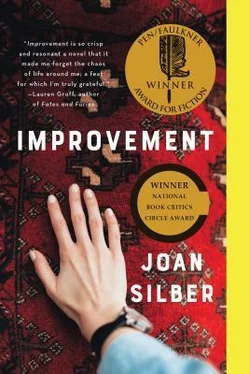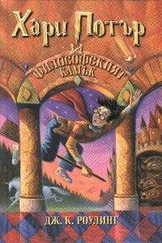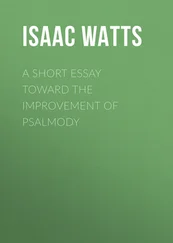“No, no,” she said.
She settled next to him. He hadn’t taken a full bath before dinner, and a trace of barn smell (which she had once liked) clung to his skin when she was close to him. How hard he worked, a man with a serious life. The Germans seemed younger. Crime, of course, was serious, but they didn’t act as if it was. They were in it for the sport of it, the travel opportunities.
She and Osman lay in bed in a cold silence, until she heard him breathing slowly in sleep. She stayed awake so long she heard the wailing notes of the call to prayer two hours before dawn. Osman and his father didn’t go to mosques very often—his father was an old-style fan of Atatürk, anti-clerical—but Aunt Ayşe had a sweet sort of piety. Kiki dressed covered up when she went into the village, but people left her alone, to be who she was. Who was she?
Was she someone who could take off, just like that, on a reckless and interesting escapade? She saw herself shifting into a new life in Europe as a Turkish history expert, a sexy outlaw. What had ever made her think she could be a farm wife? It fit with a romance about wanting to live more deeply, and not all of that was silly. Most of what she’d known before had seemed brittle and trivial, when she first came to the farm.
For a hardheaded person, she had let herself be flung about by the winds of love, and she wasn’t sorry either. Was love her religion? What a devoted practitioner she was. If there were no Osman, there would have to be someone else. Was the Dieter guy offering himself as a candidate? Kiki had some pleasant moments imagining him as a lover—he would be confident, unrelenting, generous—very, very taken with her. Maybe Germany was a great place to live. Could a Jew ever go to Berlin as if it were just anywhere? People did now. It was too weird to have these thoughts while lying next to Osman, but what did that tell you?
When Kiki woke the next day—in time, which was a miracle, to make breakfast for Osman and his father—her first thought was to hope the Germans had moved their loot back into the van, as instructed. While Osman slept on, she peeped into the room downstairs where she’d settled them on pillows, and in the early light she could see the two red-clay amphorae, still unwrapped, near their piles of clothes. If Steffi rolled too far in her sleep, she could smack right into them.
It made Kiki angry—none of what they smuggled was especially precious to these people. And where would the pieces end up? On some burgher’s bookshelf, five thousand miles from here. Osman was right to be horrified.
Kiki got a fire going in the kitchen hearth, and she reheated the barley and warmed the leftover bread and started the coffee, so Osman and his father would smell it and come down, which they did.
Osman’s father said, “They are dreaming of their digestions, our guests.”
“How many more days will they sleep?” Osman said.
The men were off working in the fields and Kiki was in the chicken coop when the Germans finally got up. She could hear them trying to talk to Aunt Ayşe in the kitchen. They were all happily eating peaches when Kiki came in. Dieter was drawing preposterous pictures to show where Germany was, and Aunt Ayşe was giggling behind her hand.
When Osman and his father came back for the midday meal, several hours later, all of them were shrieking with laughter over Bruno’s imitation of the chickens in the yard. Bruno had a clownish side. Steffi was wearing an apron—the lentil soup was ready; the stewed purslane was ready. “Chow time,” Kiki said, a phrase only Osman understood. Osman sat without saying a word. Kiki sputtered with hilarity when Steffi said, “Right now in Berlin I would eat pickled herring to cure this hangover. Really, it cures.” Let Osman glower; Kiki could laugh if she wanted.
The men were back in the field when Kiki helped the Germans pack up their van. She made sure the amphora duffels were wedged securely between the valises. “See, you are so careful, you should come,” Dieter said. Steffi wrote down the name of a hotel in Ankara. “You can find us in this place in a week, if you decide like that.” Had Kiki ever said she was deciding? Dieter gave her a souvenir, a tarnished Ottoman coin from 1903, with the old Arabic script on it. “Not so valuable,” he said, looking into her eyes. “Only good to look at.” Kiki still had it, a token from an unled life.
“You had fun with your new friends, I know,” Osman said, in their room that night. He said it sourly, and no protests satisfied him, no avowals. She loved him (she argued), she wasn’t going anywhere, did she have to swear to him? It didn’t matter what Kiki said. He’d seen her, falling all over herself in her excitement at being with these people, and look who they were. “It surprised them,” he said, “that someone like you lives here, outside a village smaller than a raisin. I’m sure they think your quaint husband is so simple he believes you’ll stay in such a place.”
Well. Maybe she didn’t want to stay. Maybe she never had. Maybe the whole thing from the start was a very misguided idea and it wasn’t her idea either. He’d gotten this scheme in his head all by himself. She couldn’t stop saying any of it. This was the beginning of a new phase, unflattering to both.
They seemed to be at a delicate point, where a very strong love was needed to bind them together, habit wasn’t enough. They kept trying to reach for what they had once had. Near the end, as a desperate plan, she tried to talk him into moving to America with her. Osman wasn’t going to leave his family, who would do a thing like that? Well, she had. And he’d never thought well of her for it either.
She regretted not going off with the Germans when she had the chance. In the farmhouse she and Osman were self-conscious at the very sight of each other, ashamed of their turned feelings. Aunt Ayşe and Osman’s father didn’t know what to do. His father decided to speak very little. Ayşe, who was often alone with Kiki in their work, grew impatient and cross—said Kiki was tossing the chickens too much feed or she was sloppy in the way she mopped. Ayşe no longer trusted her.
But the heart of the matter was Osman. Every so often, as Kiki tried to ready herself to leave, she remembered why she had vowed to never give up Osman. Dearest of men, rarest of spirits, what the fuck was she doing? But when they approached each other with sweetness (in speech or in bed) the gestures were thin and artificial. One part of the truth was smothering what they had left.
When Kiki left the farm, she took a bus all the way to Istanbul. She was going backward in time. It was a long ride, in late November, chilly the whole way, and she had plenty of time to look out the window—to see the conical Seljuk towers, the leftover Ottoman mosques, the tufa caves and “fairy chimneys” tourists came for—and to think: had she always despised Turkey? There were wonderful things out the window, and she despised them all; they had become a landscape that opposed her, that hulked as further evidence nothing here was for her.
In Ankara, she had to change to another bus, and till it arrived she sat on a bench with her belongings piled around her so that no one stole them. One man kept saying, “You are from America? Ingiltere? Almanya? Tell me!” and a younger one kept asking if she needed a husband. They weren’t dangerous but she hated them.
Istanbul would at least be better. How grandiose Osman had been, in his purist way, to drag them off to that farm. What a fraud she had been to agree to it. Had she ever believed herself? She had. In Istanbul she could go back to what she was. She wouldn’t have Osman in her way.
She was elated when the bus pulled into the city, her city, with its stately boulevards and slumped old houses. On a sloped hill of a street she stayed with Pat, who had her husband and the first of her kids then. Kiki slept in the room with the three-year-old, a lively girl who wasn’t the best sleeper. She had almost no money. Osman had made a point of giving her as many bills as he could spare, but they didn’t add up to much.
Читать дальше












